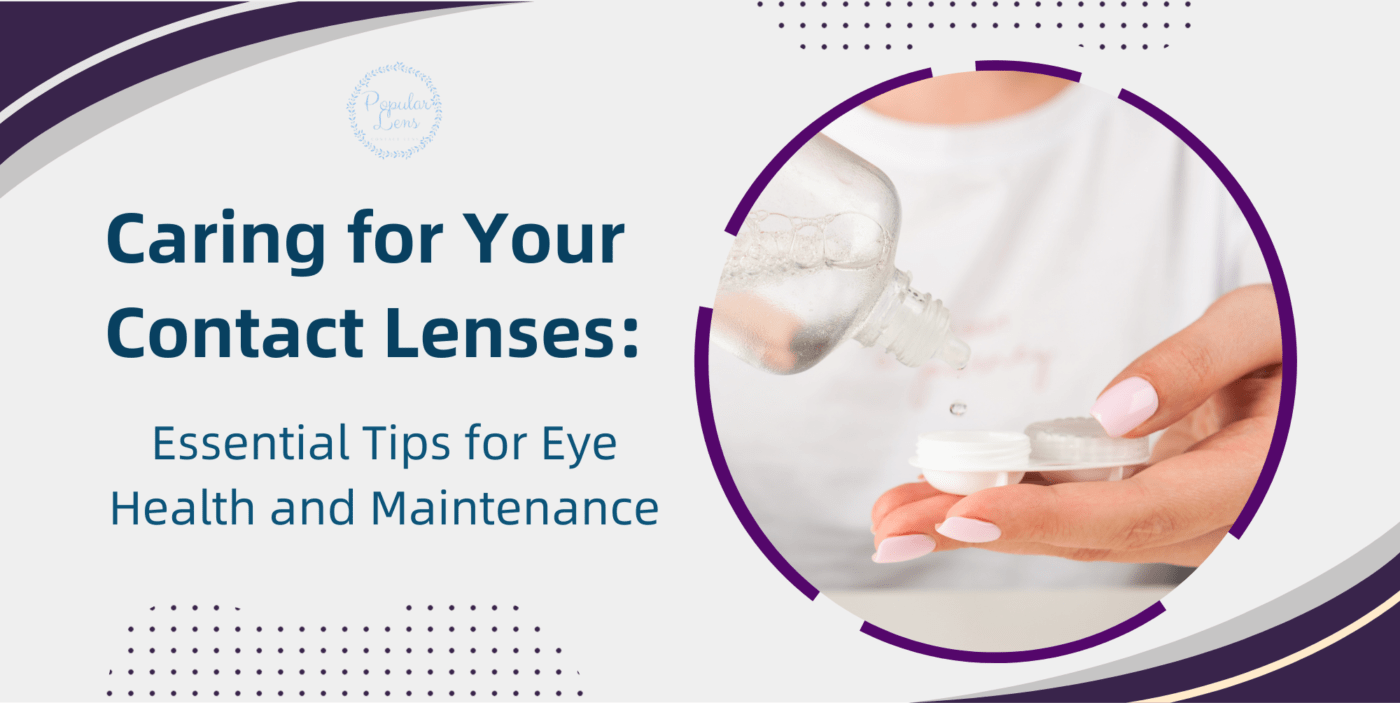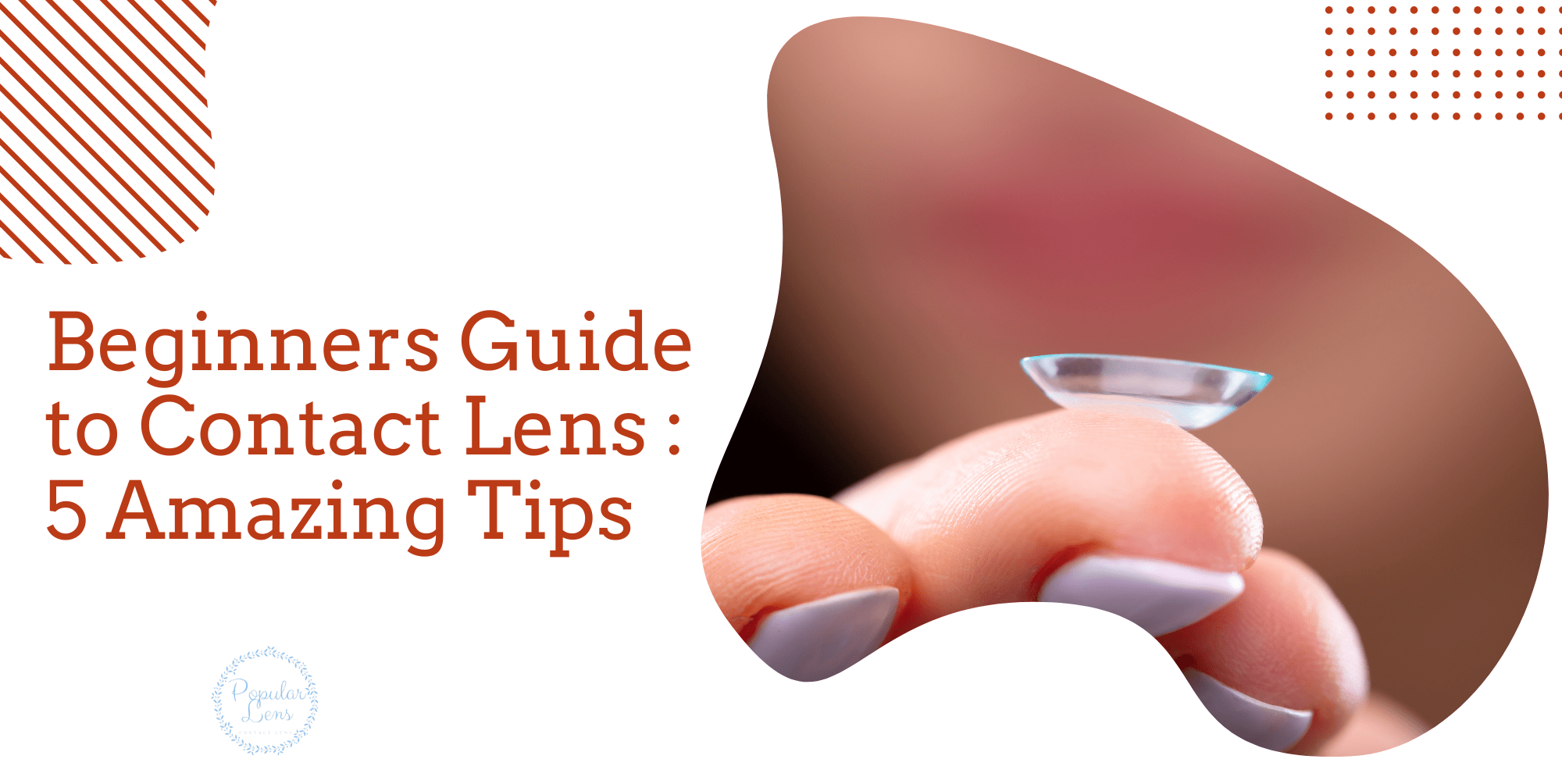Uncategorized
Caring for Your Contact Lenses: Essential Tips for Eye Health and Maintenance
Maintaining the health of your eyes while using contact lenses requires a dedicated care routine. Your contact lenses are not just vision aids but are medical devices that require proper handling to prevent eye infections and other complications.
Your commitment to lens care directly influences the comfort and performance of your contacts as well as the health of your eyes.
To ensure your eyes remain safe, it is crucial to clean and store your contact lenses as recommended by your eye care professional. This involves using the correct type solution and adhering to cleaning techniques that remove dirt, bacteria, and protein deposits that can accumulate on lenses.
By following these practices consistently, you’ll extend the life of your lenses and provide your eyes with a clean environment.
Furthermore, being aware of the do’s and don’ts of lens wear can significantly reduce the risk of eye irritation and infections.
Remember, taking pro-active steps in your contact lens care is not just about maintaining your lenses, but it’s a critical component of safeguarding your eye health.
Understanding Contact Lenses
Contact lenses are thin, curved lenses placed on the film of tears that cover the surface of your eye. They are used to correct vision, much like glasses, but offer the benefit of being virtually invisible and providing a full field of unobstructed vision.
- Soft lenses: These are made of soft, flexible plastics that allow oxygen to pass through to the cornea. They are easier to adjust and are more comfortable than rigid gas permeable (RGP) lenses.
- Extended-wear lenses: These can be worn for extended periods, including overnight. However, wearing lenses for longer periods can increase the risk of eye infections.
- Daily disposable contact lenses: These are used once and discarded, offering a convenient option with less risk of infection.
Benefits Over Glasses:
- Full Vision Coverage: Contact lenses conform to the curvature of your eye, providing a wider field of view and causing fewer visual distortions and obstructions than glasses.
- Active Lifestyle: They are ideal for athletes and those with active lifestyles as they do not break or fall off like glasses can.
- Aesthetic: Contacts do not alter your appearance; you can even use colored lenses to alter your eye color.
Some soft lenses provide UV protection, which helps to block harmful UV rays from damaging the eye. However, they should not replace sunglasses as they do not cover the entire eye and surrounding area.
When choosing contact lenses, consult with your eye care provider to ensure that you select the option that best fits your lifestyle, vision needs, and comfort preferences.
Proper Cleaning and Disinfection of Contact Lens
Maintaining the cleanliness and safety of your contact lenses is crucial to protecting your eye health. Employing both effective cleaning techniques and the right disinfecting solution will ensure your lenses remain sterile, while avoiding common cleaning errors will prevent potential eye infections.
Effective Cleaning Techniques
To ensure your contact lenses are thoroughly cleaned, start by washing your hands with soap and water, followed by drying them with a lint-free towel.
Then, gently rub each lens with a few drops of an appropriate contact lens solution to remove debris and protein buildups.
Here’s a simple step-by-step process:
- Wash your hands with soap and water; dry them properly.
- Place the lens in the palm of your hand, add a few drops of multipurpose solution.
- Gently rub the lens with your index finger in a circular motion.
- Rinse the lens again with the solution to remove the loosened debris.
Choosing the Right Disinfecting Solution
Selecting a disinfecting solution that’s suitable for your lenses and eyes is vital. Most users find a multipurpose solution convenient, as it both cleans and disinfects.
Ensure you are using a product recommended by your optometrist and never substitute with non-sterile fluids like tap water or saline solution.
Here’s what you should remember:
- Multipurpose solutions: Ideal for cleaning, rinsing, disinfecting, and storing your lenses.
- Hydrogen peroxide-based solutions: Require specific steps to neutralize the solution before placing lenses in your eyes; follow instructions meticulously.
Avoiding Common Cleaning Mistakes
Many issues arise from improper lens care. For instance, never use tap water to store or rinse your lenses due to potential contaminants.
Also, make sure to always use fresh disinfecting solution in your lens case and never top off or mix old solution with new.
Stick to these protocols:
- Do not “top off” old solution in your contact lens case.
- Avoid using saline solution or rewetting drops as substitutes for proper disinfecting solutions.
- Replace your contact lens case every three months to minimize the risk of contamination.
Safe Storage of Contact Lenses
Proper storage of your contact lenses is crucial for maintaining eye health and ensuring the longevity of the lenses. Always use a clean lens case and fresh solution to store your lenses.
Handling Lens Cases
To prevent contamination, always wash your hands thoroughly before touching your lens case.
Ensure that your hands are dry with a lint-free towel to avoid transferring any dirt or lint to your contact lenses.
After removing your lenses, empty the lens case of the old solution and rinse it with fresh contact lens solution; never use water as it can harbor microorganisms.
Afterwards, leave the case open to air-dry to prevent bacteria growth.
When to Replace Your Lens Case
Your lens case should be replaced regularly, at least every three months or as directed by your eye care provider. This helps to minimize the risk of eye infections.
A damaged or cracked case can also harbor bacteria, so inspect your case for any signs of wear and tear and replace it immediately if needed.
Keeping on track with a replacement schedule for your lens case is as important as ensuring your contact lenses themselves are discarded and replaced as per the guidelines provided by your optometrist.
Preventing and Managing Infections
To ensure the health of your eyes while wearing contact lenses, staying vigilant about preventing and managing infections is vital. Understanding the signs and following best practices can play a crucial role in maintaining good eye health.
Recognizing Signs of Trouble
If you experience symptoms such as redness, pain, excessive tearing, or discomfort, these may indicate the onset of an eye infection.
Unexpected eye problems like sensitivity to light or blurred vision, especially if they persist, necessitate a prompt visit to your eye doctor.
Corneal ulcers are serious complications that can stem from untreated infections and carry the risk of causing lasting damage.
Reducing Risks of Infection
To minimize the risks of eye infections, always wash your hands with soap and water before handling your contact lenses.
Here are some essential steps to follow:
- Clean and Store Lenses Properly: Use the recommended cleaning solution and replace it daily. Never use water or saliva, as discussed at Vision Center.
- Minimize Water Exposure: Remove your lenses before engaging in activities involving water, including showering, swimming, or using a hot tub, to avoid infections, as suggested by the American Academy of Ophthalmology.
- Adhere to Lens Wear Schedule: Follow your eye care provider‘s instructions for how long to wear your lenses and when to replace them.
- Attend Regular Check-ups: Routine visits to an ophthalmologist are critical in catching and managing any potential issues early on.
Contact Lens Hygiene and Maintenance
Proper hygiene and maintenance are critical to ensure the safety and longevity of your contact lenses and eye health. Adhering to a strict care routine minimizes the risk of infections and extends the life of your lenses.
Daily Routines for Lens Care
Your daily routine should include regular cleaning and storing of your contact lenses. Always rinse and disinfect them with the appropriate multipurpose solution after removal.
Be diligent about using fresh solution in your lens case; never reuse or top off old solution.
Handling Lenses with Clean Hands
Before touching your contact lenses, thoroughly wash your hands with soap and water, then dry them with a lint-free towel.
This reduces the transfer of germs and residue to your lenses and eyes. Hygienic handling is a must to prevent potential eye complications.
Hygiene Best Practices
Adopt these hygiene best practices for optimal eye health:
- Replace your contacts as recommended by your eye care provider.
- Limit wear time if your eyes feel uncomfortable, and consult your eye doctor if discomfort persists.
- Refrain from applying makeup before inserting your lenses and remove lenses before removing makeup.
- Use eye drops approved for contact lenses if your eyes become dry.
- Never expose your contact lenses to water, as it may harbor harmful microorganisms.
When and How to Consult Eye Care Professionals
Regular consultations with eye care providers are vital to maintain clear vision and overall eye health.
When experiencing vision problems, such as blurry vision or changes in visual acuity, you should schedule an appointment with an optometrist or ophthalmologist.
- Redness and Irritation: If your eyes become red or feel irritated, and the condition doesn’t improve with rest, it may be time to consult an eye doctor.
- Dry Eyes: Persistent dry eyes may indicate improper lens use or fit and requires professional attention.
- Eye Pain: Seek immediate care for any unexplained eye pain.
An eye exam is recommended annually, but you may need more frequent visits if you:
- Are new to wearing contact lenses
- Experience any discomfort or vision problems
- Have an eye infection or injury
Remember, optometrists can provide routine eye care and ophthalmologists offer medical and surgical treatments if necessary.
It’s essential to know who to contact based on your symptoms:
| Symptom | Eye Care Professional |
|---|---|
| Routine Check-ups | Optometrist |
| Surgical Needs | Ophthalmologist |
| Acute Symptoms | Ophthalmologist |
| Contact Lens Fit | Optometrist |
For contact lens users, ensure you adhere to the guideline provided on the proper care and replacement schedule to maintain clear vision and prevent complications.
If you notice any discharge or a sudden decrease in vision, consult your eye care professional without delay.
Your eyes are a barometer for your overall health, so take timely action to protect your sight.
We are a company of optometrists & opticians. We focus on providing our customers with their preferred optical products to achieve improved visual acuity and enjoy a better quality of life. At PopularLens, you will find niche and exclusive brands.
 Free Shipping within SG With Order Over $80
Free Shipping within SG With Order Over $80
 Lowest Price Guarantee
Lowest Price Guarantee








